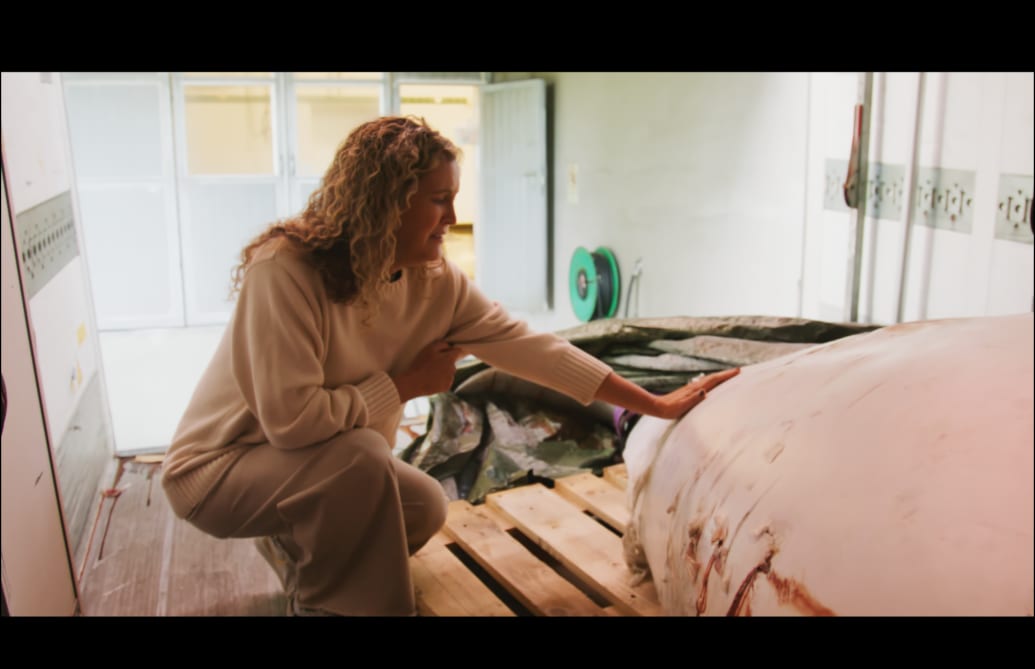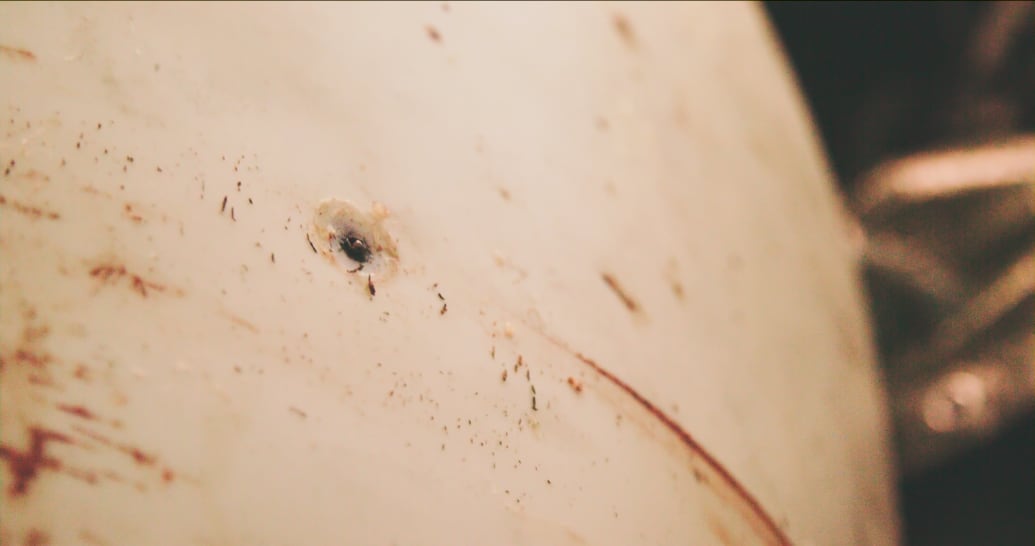Warning: This article contains images of the whale’s injuries.
The death of a beloved beluga whale in Norway suspected to have once been used as a Russian spy was no accident, local animal rights organizations claimed Wednesday.
Hvaldimir—whose name was a portmanteau of “hval”, the Norwegian word for whale, and the first name of Russian President Vladimir Putin—first appeared in the nordic nation’s waters in 2019, wearing what appeared to be a harness for a camera bearing the words “Equipment St. Petersburg.” The intriguing creature became a source of international attention and was known for his friendly interactions with humans before he was found dead close to Risavika in southwestern Norway on Saturday.
The results of an autopsy into Hvaldimir’s cause of death have not yet been released, but a pair of animal rights organizations say they have now filed a police report in connection with the cetacean’s demise.
OneWhale, an organization which worked to protect Hvaldimir, and NOAH, Norway’s biggest animal rights nonprofit, said in a press release Wednesday that preliminary findings indicate that the whale was killed by gunshot wounds.
They also released images of Hvaldimir’s bloodied carcass, claiming that the assessments of multiple veterinarians and ballistic experts who reviewed photos of his injuries strongly suggest a criminal act had taken place.
“I have been with Hvaldimir for the past five years and know him very well,” Regina Haug, the founder of OneWhale, said in a statement. “When I saw his body and the multiple injuries, I immediately knew he had been killed by gunshots. I even saw a bullet lodged in his body.”
“There is no question that this kind, gentle animal was senselessly murdered,” Haug added. “We will pursue justice for Hvaldimir and hope that someone comes forward with information about his killing.”

The body of Hvaldimir was found over the weekend.
OneWhale.org

OneWhale, a group which sought to protect Hvaldimir, claims he was deliberately killed.
OneWhale.org
Siri Martinsen, a veterinarian and the leader of Noah, added that Hvaldimir’s injuries were “alarming and of a nature that cannot rule out a criminal act.”
“[I]t is shocking,” Martinsen said. “Given the suspicion of a criminal act, it is crucial that the police are involved quickly. Hvaldimir was significant to many, and all facts must be brought to light regarding his death.”
Anna Victoria Pyne Vinje, a marine biologist with OneWhale, said it is “deeply troubling” that the whale had been “intentionally killed.”
“Equally concerning is the spread of misinformation by those claiming scientific authority, suggesting that this whale may have died from natural causes or that seabirds could inflict such severe wounds within an hour of its death,” Vinje says, referring to information included in some initial reports about Hvaldimir’s demise. “These assertions lack scientific credibility and risk misleading the public.”

Preliminary findings indicate that Hvaldimir was killed by gunshot wounds, according to OneWhale.
OneWhale.org
Not everyone is yet convinced that foul play was to blame for Hvaldimir’s demise, however.
Marine Mind, another nonprofit which worked to look after the whale, released its own statement cautioning against making hasty conclusions.
“The Veterinary Institute has not yet released the results from its investigations,” the statement read. “When we found Hvaldimir on Saturday, it was not possible to immediately determine the cause of death, and therefore it is important to refrain from speculation until the institute has completed its work. Until then, we hope people stick to the established facts.”
“We do not wish to contribute to public speculation, but we are directly assisting with what we can offer to those working to determine the cause of Hvaldimir’s death,” the statement continued. “Until the cause of death is established by those responsible for the investigation, temporary assumptions will not be useful for anything other than publicity.”
Belugas typically move in groups and are found in Arctic waters, making Hvaldimir’s solo appearance somewhat unusual. Some experts speculated that he may have been domesticated at some point in his life owing to his comfort with human beings. Viral videos captured Hvaldimir’s apparently friendly interactions with people, including playing fetch and retrieving a kayaker’s dropped camera.
NOAH and OneWhale had been advocating for Hvaldimir to be relocated to northern Norway for his own protection and to be nearer to other belugas.
“There were many obstacles that prevented his move from happening sooner, including bureaucratic processes, poorly defined laws, misinformation, and sadly, attempts by other organizations to block his move,” OneWhale founder Haug said in the press release.
“Despite this, we were so close to finally getting Hvaldimir to safety and giving him a chance at a sustainable future,” Haug added. “Our worst fears came true when his young life was cut short. Our hope is that Hvaldimir’s tragedy will be a lesson and never be repeated.”




![Tyson Foods Plant [Photo: Food Manufacturing]](https://southarkansassun.com/wp-content/uploads/2023/08/iStock_1185520857__1_.5e441daa51cca-600x337.jpg)







![Silverado Senior Living Management Inc. [Photo: Los Angeles Times]](https://southarkansassun.com/wp-content/uploads/2023/10/download-6-4-600x337.jpg)

![China's Wuhan Institute of Virology [Photo: Nature]](https://southarkansassun.com/wp-content/uploads/2023/09/d41586-021-01529-3_19239608-600x337.jpg)
















